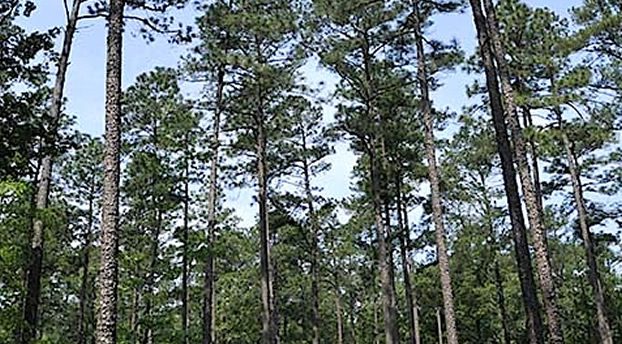CLEMSON – Clemson University Cooperative Extension is sponsoring a new statewide educational program designed to prepare family forest matriarchs for the reality that they could someday be left to make management decisions about their forestland.

More than half of South Carolina’s 13 million acres of forestland is in private, non-industrial hands and owned and managed by 207,000 family forest owners. More than 80 percent of South Carolina forestland owners are 55 years old or older and the vast majority of them are men. According to the U.S. Census Bureau, about 80 percent of wives outlive their husbands.
“It is all demographics. The Baby Boomers are a huge bulge in the nation’s forest owner age distribution and are aging fast. Many owners are couples and women tend to live longer than men. You don’t need to be a forest economist to see the result, but it helps,” said Clemson University forest economist Thomas Straka.
The first of two South Carolina Women Owning Woods (S.C. WOW) workshops will be held Oct. 5 at Big Survey Plantation in Colleton County.
The daylong workshop will introduce participants to general forestry terms, concepts and resources they can use to help them make management decisions and retain their land and its profitability. The workshop will also include a forestland tour highlighting sustainable forestry, wildlife habitat enhancement, longleaf pine restoration and conservation practices.
Registration is limited to 25 participants and is available online at https://tinyurl.com/y46eaz6v.
“We plan to hold a second workshop in April 2020 in the Upstate,” said Janet Steele, Orangeburg County Extension forestry agent and S.C. WOW coordinator. “Following the two pilot workshops, topic-specific workshops such as managing invasive species, handling legal issues of forestland ownership and timber harvests and reforestation will be offered throughout the state.”
S.C. WOW is based on the national Women Owning Woodlands program, a collaborative project of the National Woodland Owners Association (NWOA) and the USDA Forest Service Cooperative Forestry Office with 29,000 national and affiliate members in all 50 states.
“Women tend to inherit property later in life. Getting them involved when they are younger and more physically active will lead them to implement more forest management practices over the course of their ownership so they will be prepared should they eventually need to manage their forestland themselves,” Steele said.
According to a study by Clemson University economists, forestry contributes more than $21 billion and 84,000 jobs to the S.C. economy, making it the state’s No. 1 manufacturing sector in terms of jobs and labor income.
Get in touch and we will connect you with the author or another expert.
Or email us at news@clemson.edu

